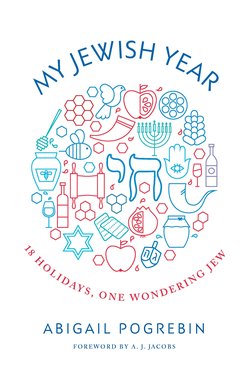Читать книгу My Jewish Year - Abigail Pogrebin - Страница 14
На сайте Литреса книга снята с продажи.
Оглавление3
THE FAST OF GEDALIAH
Lessons of a Slain Governor
9. 28. 14
THE FIRST FAST of the year falls two days later, and no, it’s not Yom Kippur. The Fast of Gedaliah (“Tzom Gedaliah”) is obscure, to say the least, and my having to honor some ancient assassinated governor feels like a major test of holiday stamina.
The story is dramatic: after the bloody destruction of the First Jerusalem Temple by the Babylonians in 586 B.C.E., most Jews fled The Judean kingdom (ancient southern Israel) to seek safety in Babylon. The cruel, conquering Babylonian king picked a kindhearted Jew named Gedaliah to govern those Jews who stayed behind. Gedaliah was murdered by a power-hungry rival—at a banquet, no less. The Fast of Gedaliah marks the assassination of one Jew by another and the destruction of the First Temple (the first of four nods we’ll make this year to the losses of the First and Second Temples—our ancient, holy centers of worship).
It’s safe to say that, until this year of living Jewishly, I never knew we had to fast before The Big Fast. And it’s annoying. Especially because this fast happens mid-atonement, the day after Rosh Hashanah ends. (Except if the calendar drops Gedaliah on a Saturday, as it does this year, in which case the fast is delayed a day because fasts are prohibited on the Sabbath. Got that?) The upshot is that I’m fasting on a Sunday, September 28, 2014, six days before Yom Kippur.
This fast technically isn’t as onerous as Yom Kippur’s because it lasts from dawn to dusk instead of the full twenty-five hours (it’s twenty-five because you have to wait about forty-five minutes after sundown on the day the holiday ends to make sure it’s dark). But not eating or drinking is onerous at any stretch, at least for this Jew. Especially on a Sunday, when there’s less to distract me.
My husband and kids choose not to join me in my starvation, though they apologize for the waft of toasted bagels. But my friend Jeremy from synagogue has offered to be my “Fast-Chum” in solidarity (I came up with that title since he’s British), so that helps me feel less sorry for myself.
And what does Gedaliah have to do with Rosh Hashanah? It’s a little fuzzy, but basically the Jews who chose to stay in Judea after the Temple’s destruction were not sure whether to hang around after Gedaliah’s murder. They awaited God’s word, which would come through the prophet Jeremiah, who awaited divine guidance for ten days, around the time of Rosh Hashanah and Yom Kippur. (Jeremiah urged the people to stay; he was ignored and most fled.)
The Talmud (Torah commentary by ancient rabbis) says that we should fast for Gedaliah just as we fast for the Temple’s ruin itself because “the death of the righteous is equivalent to the destruction” of the holy Temple. We fast to remind ourselves what happens when one Jew turns on another.
It reminds me of how ugly the divisions became months earlier, when every American Jew seemed to have an immovable opinion on the summer war in Gaza and an inability to listen to one another. Of course I understand dissent. But the discourse went beyond debate and turned vicious. Maybe this fast offers a way to be alert to that degeneration.
Steven M. Cohen, the droll, eminent sociologist who studies trends in Jewish identity, connectivity, and indifference, offers me an interesting tidbit: some peace activists have suggested that this holiday be updated to honor Yitzhak Rabin, the late Israeli prime minister who some pegged, like Gedaliah, to be a betrayer, and who was assassinated by a Jew in 1995. But during the fast itself, I’m more focused on hunger than infighting. Cohen explains to me that it’s actually legal to eat breakfast before the sun comes up (technically seventy-two minutes before sunrise) so one can start the day on a full stomach, but I forget to set my alarm and I wake in the daylight, when the fasting-clock has already begun. My headache explodes from caffeine withdrawal as I kick myself for forgetting Cohen’s advice.
But I have to admit that, whether or not Gedaliah’s murder speaks to me, I remember I am a Jew today. All day. Hunger reminds me again and again of why I can’t eat, why we give things up so that we don’t repeat the errors of our ancestors, mistakes that are so easy to commit again. This people, to which I belong, doggedly replays history, however remote its events may be.
